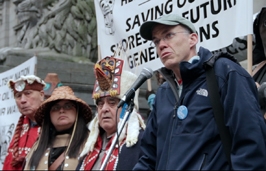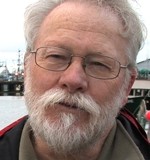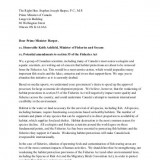The resignation of John Van Dongen from the Liberal caucus to become an instant one-man Conservative caucus has, for me at any rate, put the focus on John Cummins.
Let’s look at Mr Cummins’ record and positions.
Mr. Cummins’ claim to fame is his integrity – his record of standing up for BC and his constituency in the House of Commons and paying for this integrity by permanently putting himself offside with Stephen Harper thus disqualifying himself from cabinet.
What was the issue that came up time after time in Cummins’ parliamentary career?
No prize for saying BC’s wild salmon. He flouted the law in the cause, risking jail. He fought against First Nations accusing them of illegal fishing. Whenever the subject of BC salmon was raised you would find John Cummins fighting for the symbol and very soul of our province – our wild salmon. I shared platforms at protests with him. On the question of fish farms Cummins stated that there were serious problems that had to be addressed.
This raises two questions – the first was raised by Charlie Smith in the Georgia Straight in the March 27 edition which I sent in a mail-out and is posted on Facebook, namely, how does Mr. Cummins welcome to his new caucus a man who was so steadfast in his defence of fish farmers he even warned them when the enforcement officers were coming and had to resign in consequence?
Is that the Cummins integrity we hear so much about?
I go further, why didn’t either Cummins or Van Dongen deal publicly with this apparent major conflict on a huge issue – why was it left to Smith?
This is small potatoes and will no doubt be brushed aside by noting that fish farms are now a federal matter.
Let’s go to the main issue that will keep Cummins contained within the boundaries of the far right – the Enbridge pipeline and the consequent tanker traffic down our beautiful yet extremely hazardous coast as well as through Vancouver.
Some questions for Mr Cummins:
- It is a mathematical certainty that the pipeline will have ruptures and spills – do you agree? If not, are you saying that it won’t happen?
- Enbridge has an appalling accident record – 811 since 1998 – does this not concern you?
- Are you aware that the pipeline would cross over 1,000 rivers and streams, most of which have fish in them, many tributaries of major spawning rivers and creeks with at least three being essential to large runs of spawning salmon? Assuming that you are aware, where is your concern for the fish you claim to love so much?
- Are you aware that the 1,100km line passes through the Rockies and Coast ranges thence through the Great Bear Rainforest? Assuming you are aware, how does Enbridge fix a leak or rupture? How does Enbridge get men and machines into the afflicted area when it’s only accessible by helicopter?
- Are you aware that Enbridge has admitted that there will be spills and have set up clean-up protocols even though they’ll not do any good? Are you aware of the fact that even if Enbridge could get to the site, there’s bugger all they can do? Have you examined the Kalamazoo case where 20 months later Enbridge is still trying to clean up a spill – which they categorized as minor – exposing that even though it happened in a populous state by a highway it never will be cleaned up? Do you know about this Mr. Cummins?
- Are you aware that Environment Canada, scarcely filled with eco-freaks, has said that there will be tanker accidents on a regular basis with a major one every 10 years?
- Here’s what long time fisherman in the area, John Brajcich has to say:
With our family’s 80 plus years of fishing in the Whale Channel area we have firsthand knowledge of tides, weather, types of fish and bird life. The area from Kitamaat to Hecate Straits is designated Area 6, by Fisheries and Oceans Canada and is the most consistent salmon producing region in British Columbia with runs in the odd and even years.
In Area 6 there is:
- Within the Central coast area 128 salmon bearing streams
- Kitasu Bay to McInnes Island is a major herring spawning ground
- All 5 species of salmon, herring, crab, mussels, clams, abalone, prawns, eulachons, pilchards, hake, geoduck, mackerel, halibut cod, pollock, otters, eagles and many birds, plus whales and porpoises
- Tides that fluctuate over 20 feet causing currents of up to 5 knots
- Being a region of heavy snow and glaciers there are very strong freshets from May to the end of July
- The outflow winds from Douglas Channel can be extreme during summer and winter
- Weather in Hecate Straits – because of strong complex currents, waves have been recorded up to 30 metres. The highest wind gusts recorded for November, December, January, February and March is 180 -190-plus km per hour.
If a ship enters Laredo Channel from Hecate Straits at McInnes Island the tanker would have Lenard Shoal and Moody Bank at the bottom of Aristazabl Island. On the east side of Aristazabl Island there are 2 very dangerous rocks known as Wilson and Moorhouse. Campania Sound is also a very treacherous body of water from Dupont Island to Hecate Straits.
There are many rocks and to name a few, Bortwick, Cort, Ness, Evans, Cliff and Janion also Yares Shoal. This area is a minefield of reefs. These rocks are spread out between Rennison Island, Banks Island and Campania Island. This route would be extremely dangerous to tanker traffic. Using the Otter Pass route, Nepean rock becomes a very prominent problem for ships’ travel.
On the question of damage Mr Brajcich says:
Should a major oil spill occur I feel an oil boom would not be able to contain it because of the velocity of the current in this area and the oil could travel 20-50 miles in one 6 hour tide. This area is not the Mediterranean or a lagoon.
If a spill occurred in Laredo Channel the herring spawning area at Kitasu Bay to Price Island could be totally destroyed, possibly forever. The eel grass which the herring need to spawn on could be wiped out. Some years over 10,000 tons of herring spawn in this area.
A spill at freshet time would be the most devastating. Due to the differences of its viscosity, salt water is heavier and would be lower and the fresh water being lighter, becomes a shallow layer at the surface. The juvenile salmon live in this fresh water layer as they migrate to sea. The juvenile salmon jump like raindrops and if they were migrating in a spill area the oil could wipe out an entire run. Some streams could become barren of salmon.
Do you accept that evidence, Mr. Cummins? If not, where do you quarrel with your fellow commercial fisherman’s evidence?
Let me be blunt.
With the forgoing, how can you possibly support the Enbridge pipeline and tanker traffic of more than 200 per year out of the port of Kitimat?
How can you possibly expect the public of BC to vote for a man and a party that approves the certainty of massive damage to our beautiful wilderness accompanied by huge, irreparable damage to our coast and destruction of hundreds of thousands of BC wild salmon – likely permanently.
Let me tell you this, Mr. Cummins – you are a man I’ve long admired for the courageous stands you have taken on the preserving and enhancing of our BC salmon.
But that’s before you looked just like the political phoneys you used to fight so hard when you had a halo.







